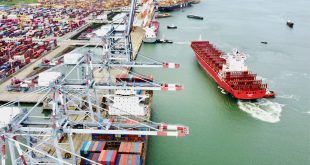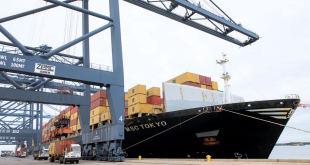Policymakers, experts and businesses gathered in HCM City on November 14 to discuss ways to develop a complete system for trading and exporting rice, which is one of Vietnam’s strategic commodities.
Deputy Minister of Industry and Trade Nguyen Thanh Bien, said the current mechanism has provided great support to businesses in rice trade and exports.
To date, more than 200 businesses have been licensed to export rice, helping expand outlets for farmers and increase the amount of rice on the market. Despite market difficulties, rice exports have met the target set for the 2008-2009 crop in terms of both volume and value.
However, he admitted that the management of rice exports revealed weaknesses, especially when there were wild fluctuations in market prices.
A representative of the Vietnam Food Association pointed to the fact that many rice export businesses do not have warehouses and processing workshops and they only export when they sign contracts with importers, putting farmers at a disadvantage.
Policymakers and businesses proposed a new mechanism, which focuses on reorganising the network of key exporters, clarifying their responsibilities towards purchasing rice from farmers, negotiating and making public prices, and imposing heavy fines on regulation violators. They agreed to tighten the licensing of businesses eligible to export rice.
Professor Vo Tong Xuan suggested that the new mechanism meet the three criteria: the volume and quality of rice, farmer interests and food security. Meanwhile, Pham Van Bay, director of An Giang Food Import-Export Company, said that the standardisation of key export businesses will help stabilise market prices.
Addressing the conference, Deputy Prime Minister Hoang Trung Hai welcomed the delegates’ recommendations to the government’s draft decree on a new mechanism for rice trading and exports. He said the decree aims to create a strong legal corridor to overcome existing weaknesses and ensure rice export activities will be carried out in a sustainable and stable manner.
He asked the decree compiling board to take into account the development of the rice market in the near future and Vietnam’s commitments to international organisations such as the ASEAN Free Trade Area (AFTA), and the World Trade Organisation (WTO) as well as other bilateral and multilateral agreements.
According to him, a new mechanism should ensure the interests of the national economy, businesses and farmers.
Source: CPV online
 Vietnam Seaports Association
Vietnam Seaports Association




